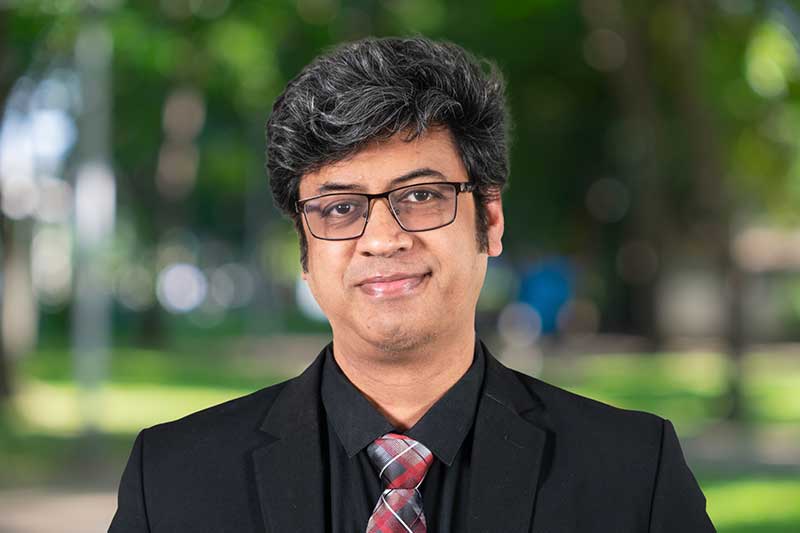Education
B.S., Bangladesh University of Engineering and Technology
Ph.D., Nanyang Technological University Singapore
Short Bio
Kazi Monzure Khoda is currently an Assistant Professor (tenure-track) in the Karen M. Swindler Department of Chemical and Biological Engineering at the South Dakota School of Mines and Technology, where he leads the Process Optimization, Design Integration, and Informatics (PRODIGI) research group. The vision of his PRODIGI research group is to design sustainable materials and processes using multi-scale systems engineering (e.g., process integration/intensification, dynamic modeling, robust optimization, advanced process control systems, risk assessment) and hybrid mechanistic/data-driven modeling to address energy security and transition, environmental protection, supply chain management, process safety through computation and simulation, and data science, especially using machine learning, AI, and quantum computing. Before his current appointment, Dr. Khoda was an Assistant Research Scientist at the Texas A&M Energy Institute and a Postdoctoral Fellow at Qatar University. He earned his Ph.D. in Chemical Engineering from Nanyang Technological University, Singapore, and completed his B.Sc. in Chemical Engineering from Bangladesh University of Engineering and Technology. He has co-authored more than 35 peer-reviewed journal articles and has made numerous presentations at international conferences. In addition to his academic pursuits, Kazi is a certified blockchain developer certified by IBM and HarvardX. He is particularly skilled in harnessing data with artificial intelligence and machine/deep learning through data-driven methods to enhance the industry 4.0 applications.
Research interests
Foundations (Process Systems Engineering, Machine Learning, Quantum Computing)
- Sustainable process design, integration, optimization, and control
- Hybrid mechanistic/data-driven modeling
- Blockchains and game-theoretic approaches for resilient supply chains
- Quantum mixed-integer and constrained optimization, hybrid quantum/classical computing for optimization
Applications (Energy and the Environment, materials design, process safety)
- Sustainable hydrogen infrastructure for equitable low-carbon development
- Carbon capture, utilization, and storage (CCUS) in clean energy transitions
- Smart additive manufacturing
- Life cycle sustainability assessment
- Industrial safer flare management
Vision
Over the next five years, I will establish an independent research lab that not only develops algorithms but also validates them through in-house experiments. This lab will lay the foundation for strategically building a reinforcement learning (RL) layer to optimize experimental design, starting with composite materials (already underway), 2D materials, and expanding to broader innovations in material and process design. Additionally, I will cultivate a next-generation workforce skilled in blockchain, AI, and quantum computing, ensuring we stay at the forefront of rapid technological advancements.
